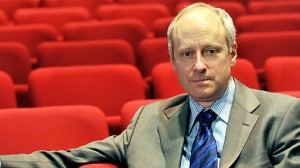Michael J. Sandel is the Anne T. and Robert M. Bass Professor of Government at Harvard University, where he has taught political philosophy since 1980. Sandel is best known for his undergraduate course, “Justice,” which is the first Harvard course to be made freely available online and on public television. His accompanying book on the topic, Justice: What’s the Right Thing to Do (2009), is an international bestseller. Additionally, he is the author of seven other books including The Case Against Perfection: Ethics in the Age of Genetic Engineering (2007) and What Money Can’t Buy: The Moral Limits of Markets (2012).
Book Basics
The world has changed significantly over the last three decades, including the incredible expansion of markets and market values into areas that had previously been viewed as inappropriate for or inaccessible to such. During the era of market triumphalism this expansion was viewed by most as a natural progression; now, after the significant economic failures and shifts, it is essential that people begin to critique prior assumptions with a willingness to challenge assumptions about the role of and proper boundaries for markets. The economic perspective that commodification does not impact the nature of a good, service or relationship must be understood as outdated. With the increasing reliance on incentives in many areas — healthcare, education, and immigration to name a few — the notion of economics as independent from morality must be dismissed. As money is able to buy more and more things, people from differing socioeconomic groups lead increasingly separate lives affording fewer and fewer opportunities to interact with those outside one’s own group. Charting a different course forward requires a willingness to “deliberate openly and publicly about the meaning of the goods and social practices we prize” within a framework that allows for contributions of “moral and spiritual substance” (p.202).
So What?
Paying people to do good deeds changes how people feel about civic responsibility. A world in which nearly anything can be bought for a price, inappropriately elevates the role of money. When children are paid for reading books, receive report cards in packaging covered by advertising, and play sports on fields named by businesses they are indoctrinated into a new world in which the reach of markets is pervasive.
What wisdom does your religious understanding offer to the following questions?
- Do you want a society where everything is up for sale? Or are there certain moral and civic goods that markets do not honor and money cannot buy?
- How has the expansion of markets and market values impacted how people view their affiliation with communities of faith, including your own local congregation?
Michael J. Sandel. What Money Can’t Buy: The Moral Limits of Markets (Farrar, Straus, and Giroux, 2012). ISBN: 9780374203030.
